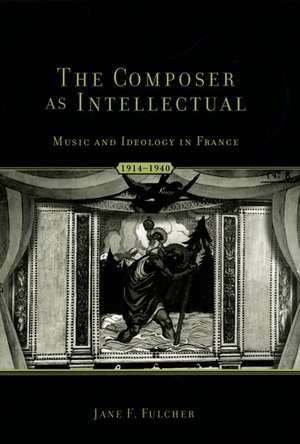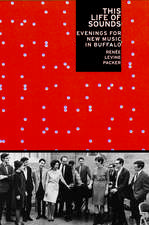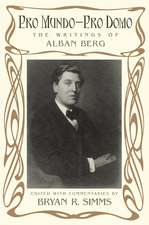The Composer as Intellectual: Music and Ideology in France 1914-1940
Autor Jane Fulcheren Limba Engleză Paperback – 20 mar 2008
Preț: 265.57 lei
Preț vechi: 291.15 lei
-9% Nou
Puncte Express: 398
Preț estimativ în valută:
50.82€ • 53.06$ • 42.06£
50.82€ • 53.06$ • 42.06£
Carte tipărită la comandă
Livrare economică 25-31 martie
Preluare comenzi: 021 569.72.76
Specificații
ISBN-13: 9780195342963
ISBN-10: 0195342968
Pagini: 488
Ilustrații: 4 halftones, 7 line illustrations
Dimensiuni: 156 x 234 x 25 mm
Greutate: 0.68 kg
Editura: Oxford University Press
Colecția OUP USA
Locul publicării:New York, United States
ISBN-10: 0195342968
Pagini: 488
Ilustrații: 4 halftones, 7 line illustrations
Dimensiuni: 156 x 234 x 25 mm
Greutate: 0.68 kg
Editura: Oxford University Press
Colecția OUP USA
Locul publicării:New York, United States
Recenzii
Fulcher succeeds brilliantly in her stated (but not too modest) ai?
Notă biografică
Jane Fulcher is Professor of Musicology at the University of Michigan. She is the author of The Nation's Image: French Grand Opera as Politics and Politicized Art (1987), French Cultural Politics and Music: From the Dreyfus Affair to the First World War (OUP, 1999), and editor of and contributor to Debussy and His World (2000). She served as Visiting Professor at the Ecole des Hautes Etudes en Sciences Sociales in Paris in 1985 and again in 1995. She has received research awards from the Centre National de la Recherche Scientifique (Paris), the Institute for Advanced Study (Berlin), the National Endowment for the Humanities, the American Council of Learned Societies, the National Humanities Center, and the Institute for Advanced Studies (Princeton, NJ).















